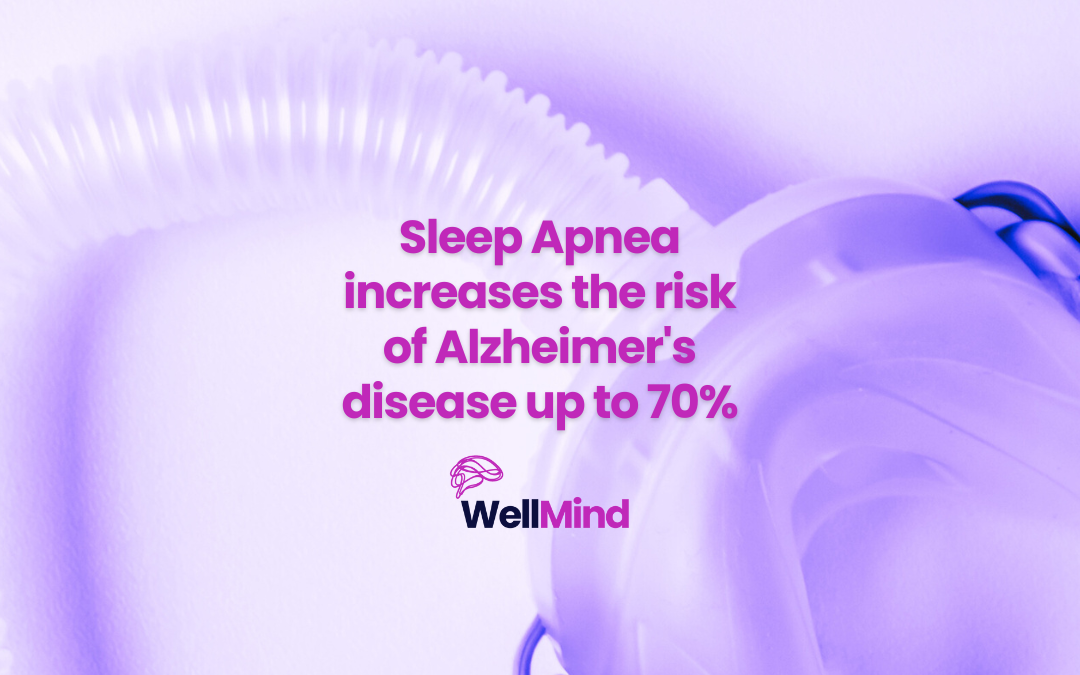Alzheimer’s disease affects more than 6 million Americans and nearly two-thirds of them are women. While women tend to live longer, that doesn’t fully explain why they face a higher risk. Today, scientists are uncovering new insights into how Alzheimer’s begins decades before symptoms appear, and how early interventions,especially for women, may help change the course of the disease.
The Unique Risk Women Face
Research shows that hormonal, genetic, and even lifestyle differences contribute to women’s greater risk for developing Alzheimer’s. Estrogen, which supports brain function, drops significantly during menopause. This hormonal shift is now believed to play a role in triggering the early stages of Alzheimer’s-related brain changes in some women.
In addition, women who carry the APOE ε4 gene which is known to increase the risk of Alzheimer’s Disease, may be more affected by its impact than men with the same gene. These combined factors point to the need for greater focus on women in both research and prevention.
Alzheimer’s Begins Decades Before Diagnosis
Perhaps one of the most important discoveries in recent years is that Alzheimer’s doesn’t start when memory loss becomes obvious. In fact, changes in the brain, like the buildup of amyloid-beta plaques and tau tangles, can begin up to 20 years before a diagnosis is typically made.
This preclinical phase is a critical opportunity. If we can identify individuals at risk earlier, we have the potential to slow or even prevent the disease from progressing.
New Research Is Offering Hope
While there is no cure for Alzheimer’s yet, researchers are exploring a number of promising approaches that could significantly reduce risk when started early.
1. Hormonal Pathways and Brain Health
A recent study found that the hormone leptin, known for controlling hunger, may also protect the brain. Leptin has been shown to reduce brain inflammation and improve memory in animal models. Because leptin levels are often lower in people with Alzheimer’s, boosting this hormone could become a target for future therapies.
2. Repurposed Medications Show Promise
Drugs like liraglutide and semaglutide (used to treat diabetes and obesity) have been associated with lower risk of Alzheimer’s. These GLP-1 receptor agonists appear to improve brain metabolism and reduce inflammation, which are two key factors in slowing Alzheimer’s progression.
3. Lifestyle Changes Matter
Exercise continues to be one of the most powerful tools we have. In particular, strength training twice a week has been linked to better cognitive performance in older adults. It’s thought that resistance exercise improves blood flow to the brain and reduces inflammation, both of which help preserve memory and executive function.
A Personalized Approach to Prevention
As we learn more about the underlying causes of Alzheimer’s, it’s becoming clear that a one-size-fits-all approach won’t be enough. Women’s brains age differently than men’s, and they need prevention strategies tailored to their unique biology.
What does the future of Alzheimer’s prevention look like?
- Earlier detection through biomarkers and cognitive screening, especially starting in midlife.
- Targeted interventions that account for hormonal and genetic risk factors.
- Lifestyle plans personalized to an individual’s health history, gender, and risk profile.
The Time to Act Is Now
At ADx Health, we believe the future of Alzheimer’s research lies in early detection, precision diagnostics, and empowering individuals to take action long before symptoms start. That’s why we’re committed to developing accessible, science-backed tools that help people, especially women, understand their risk and protect their brain health for the long haul.
Sources
Harvard Health Publishing. Why are women more likely to develop Alzheimer’s disease? https://www.health.harvard.edu/blog/why-are-women-more-likely-to-develop-alzheimers-disease-202201202672
Alzheimer’s Society. Signs of dementia seen 18 years before diagnosis. https://www.alzheimers.org.uk/research/care-and-cure-research-magazine/signs-dementia-seen-18-years-diagnosis
The Times (UK). Scientists find hormone that could stop Alzheimer’s. https://www.thetimes.co.uk/article/scientists-find-hormone-that-could-stop-alzheimers-g3bs3gzxb
The Times (UK). Diabetes drug linked to lower Alzheimer’s risk. https://www.thetimes.co.uk/article/ozempic-weight-loss-medication-dementia-20lmds8pm
The Sun. Weightlifting twice a week can lower dementia risk. https://www.thesun.ie/health/15009027/exercise-dementia-older-people-weight-lifting/







